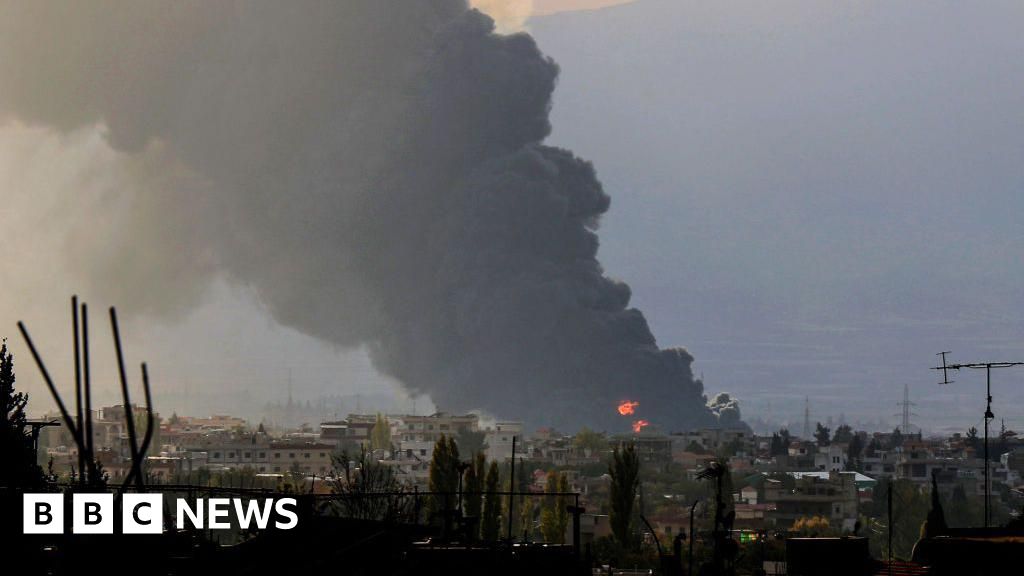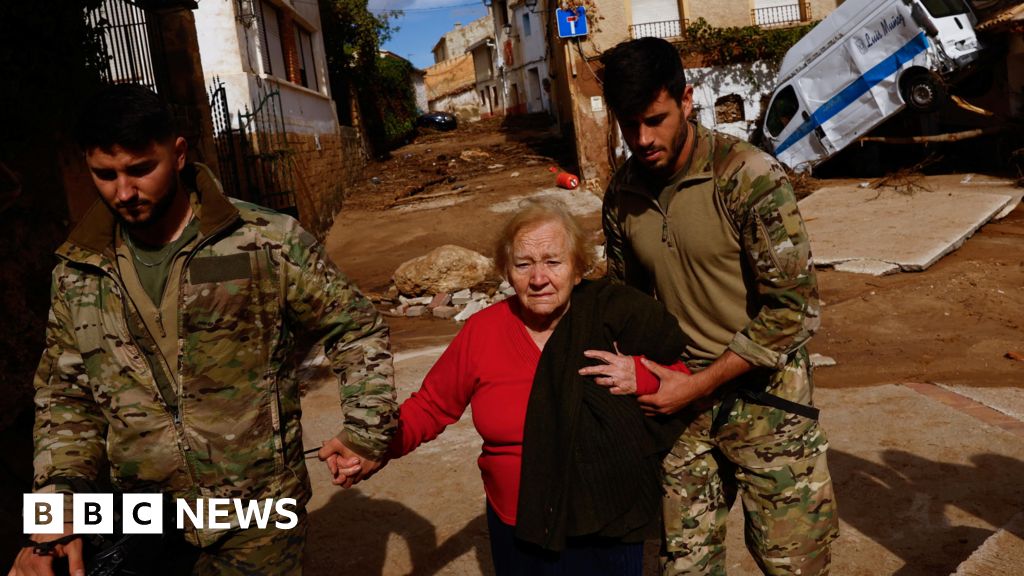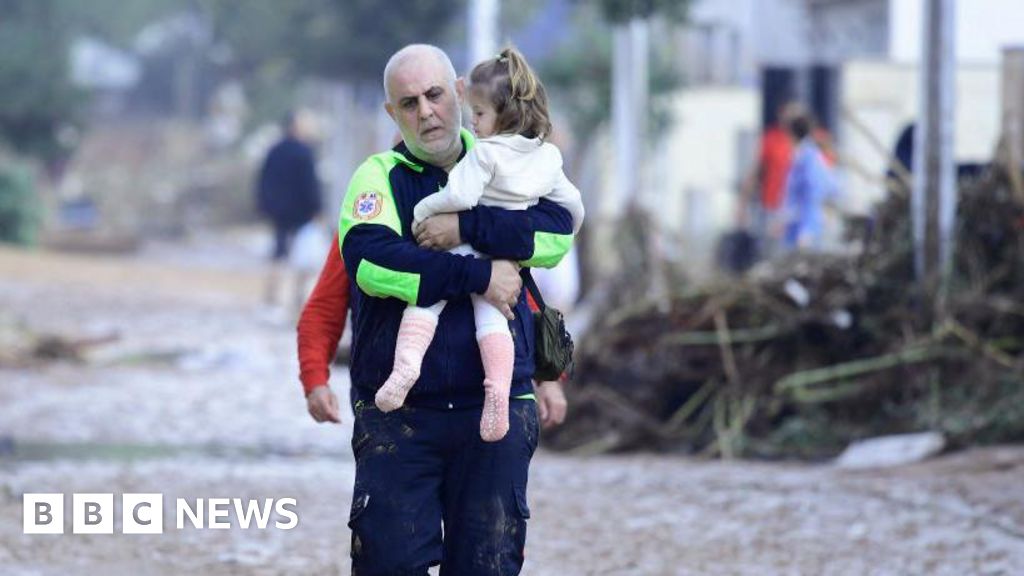ARTICLE AD BOX
Watch: BBC finds little foreign aid in flood-hit Derna
An official in eastern Libya has denied allegations that many of those killed in devastating floods last weekend were told to stay in their homes.
Othman Abdul Jalil, a spokesperson for the Benghazi-based government, told the BBC that soldiers warned people in the city of Derna to flee.
He denied that people were told not to evacuate, but conceded some may have felt the threat was exaggerated.
Meanwhile, BBC teams in Derna say aid agencies are yet to arrive at the city.
While reporters witnessed a hive of activity in the centre of Derna - with rescuers, ambulance crews and forensic teams working to identify the dead - there was little sign of major international aid agencies.
A spokesperson for one organisation said that trying to coordinate aid operations in the country was "a nightmare".
"Libya one week ago was already complicated," said Tomasso Della Longa from the International Federation of Red Cross and Red Crescent Societies (IFRC).
Making the situation even more complicated is the fact that the floods have destroyed crucial infrastructure, like roads and telecommunications systems.
Death tolls that have been provided vary from around 6,000 up to 11,000. With many more thousands still missing, Derna's mayor has warned that the total could reach 20,000.
The BBC has been told that some victims' bodies have washed ashore more than 100km (60 miles) from Derna, after they were swept out to sea.
A spokesperson for the United Nations' humanitarian office, Jens Laerke, told the BBC that there were still survivors and dead bodies under the rubble, and that it would be some time before they knew the true number of casualties.
"We are trying to not to have a second disaster there. It is critical to prevent a health crisis, to provide shelter, clean water and food," he said.
More than 1,000 people have so far been buried in mass graves, according to a UN report.
The World Health Organisation (WHO) has asked disaster workers to stop doing this, because a hasty burial in mass graves can lead to long-lasting mental distress for grieving family members.
Thousands of people were killed when two dams burst in the wake of Storm Daniel on Sunday, washing whole neighbourhoods into the Mediterranean Sea.
Survivors have described terrifying escapes and people being swept away in front of their eyes.
Image source, Reuters
Image caption,Entire neighbourhoods were washed into the Mediterranean Sea
The country's fragmented political situation is said to be complicating the clear up process. Libya is split between two rival governments - with the UN-backed administration based in the capital Tripoli and the rival Egyptian-supported one based in Benghazi.
There have been widespread suggestions that the two dams that collapsed were not well-maintained.
Questions raised over evacuation orders
There are also conflicting reports as to whether - and when - people were told to flee their homes.
Derna's Mayor Abdulmenam al-Ghaithi told Arab news channel Al-Hadath that he "personally ordered evacuating the city three or four days before the disaster." The BBC has not been able to verify this.
As the weather got worse, police and military were telling people to leave their homes for higher ground, survivors have told the BBC.
But it seemed many people did not take the threat seriously.
"A lot of them did but unfortunately, people sometimes, they said, 'well you know, this is exaggerating, this might not be the case'," an official from Libya's unofficial, eastern administration told the BBC's Newshour programme.
There are also allegations that officials took to Libyan television on Sunday night, and ordered people to stay in their homes because of the bad weather. But the same official, Othman Abdul Jalil, denied this.
It is too early to attribute with certainty the severity of this storm to rising global temperatures. However, climate change is thought to be increasing the frequency of the world's strongest storms.
Prof Liz Stephens, an expert in climate risks and resilience at the UK's University of Reading, said scientists were confident that climate change was super-charging the rainfall associated with such storms.
On Friday, a top UN official, Martin Griffiths, said the disaster was "a massive reminder" of climate change and the challenge it posed.
Your device may not support this visualisation

 1 year ago
9
1 year ago
9








 English (US)
English (US)